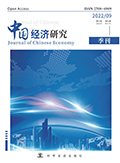

“发展型国家理论”的“国家能力解释”是理解后进国家经济发展原因的一个重要学说, 近来, 该学说在案例论证和逻辑论证两方面遭到了质疑;本文从“主体主义内因视角”“国家能力弹性”以及“协调主次因素”三个“潜理论”支持了该学说的案例解释, 并从“概念滑转”的非“循环论证”特征以及“国家能力”的“结果依赖”特征两方面支持了该学说的逻辑论证;本文认为, “国家权力”概念无法取代“国家能力”概念, “国家能力解释”可以通过引入“政府禀赋”和“要素推移叠加逻辑”以及强化对具体“制度文化”的把握来得到进一步完善, 从而可以把该学说发展成为一个解释经济发展的更为一般化的理论, 而对“循环论证”的否定则可以看成是发展新理论的一种准备。
The“state capacity explanation” of the“developmental state theory” is an important doctrine for understanding the reasons for economic development in latecomer countries. Recently, this theory has been questioned in terms of both case and logical demonstration. This paper supports the case explanation of this doctrine from three“latent theories” : the“internal cause perspective of subjectivism” , “the flexibility of state capacity” , and“the coordination of primary and secondary factors” , and the non-circular argumentation of the concept of“conceptual slippage” and the“outcome dependence” of“state capacity” support the case explanation of the doctrine. This paper argues that the concept of“state power” cannot replace the concept of“state capacity” and that the“state capacity explanation” can be further refined by introducing“government endowment” , and“logic of factor shifting and combining” , and by strengthening the mastery of specific“institutional cultures” , so that the doctrine can be developed into a more general theory to explain economic development, while the rejection of the“circular argument” can be regarded as a preparation for the development of a new theory.